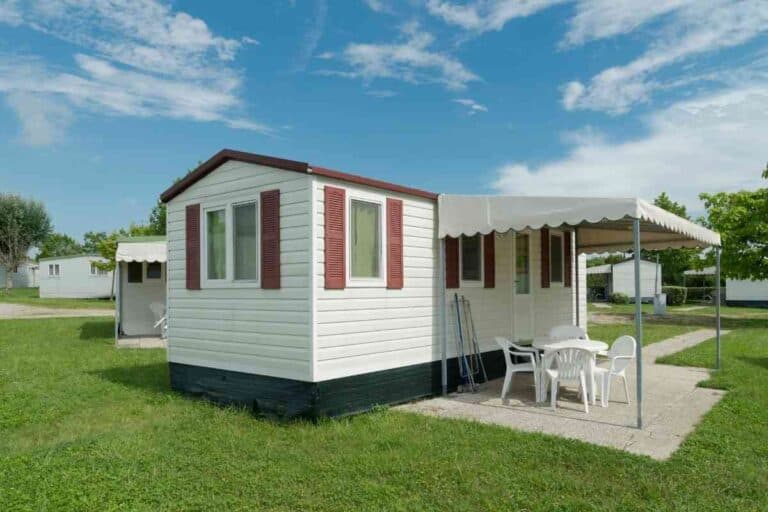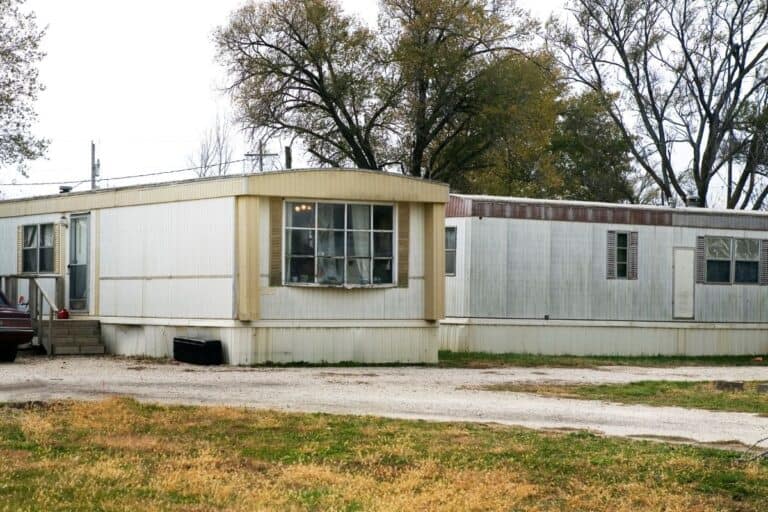Negotiate Your Best Deal: Buying a Mobile Home
Buying a mobile home is possibly one of the most important investments you’ll make in your lifetime. Mobile homes come in many shapes and sizes, so there’s something out there for everyone. However, it’s still important to do your research before making any commitments.
There are plenty of resources available online that can help you find the perfect mobile home for you and your family – including what size and shape would work best, how much space will be needed for future family growth, and more. But when it comes to negotiating the price, it’s a lot harder to find good information on what to do.
It is almost always possible to offer less on a mobile home. That’s why I’ve put together this list of tips to help you save on your next mobile home purchase – whether you are buying used from a private party or a new mobile home from a dealer. I have negotiated all kinds of properties as a buyer and a seller, and these negotiating tips really helped me get the best deals.
Know Your Budget
It doesn’t matter if you’re negotiating for a mobile home or negotiating your salary at work; it’s always important to know what your budget is and how much you can reasonably afford. Your budget will play a huge role in negotiating the price because it will give you an idea of what type of property and concessions you’ll need to consider.
Besides the cost of buying the mobile, you should establish a monthly budget based on your other expenses like rent and utilities. Mobile homes are very affordable, but they also require utility hookups and a plot of land, so those costs need to be built into the overall monthly payment as well.
Also, knowing your budget will help you know whether to offer a concession, like negotiating for new appliances or furniture. Sometimes accepting a higher price than hoped for maybe a better option if it saves you money elsewhere.
Before making an offer on a mobile home, you also want to ask yourself one question: What is the ceiling? You need to know your absolute limit because negotiating isn’t really useful unless you know when to walk away. If you don’t have an upper price in mind, you may end up paying more than you can afford.
Take the Time to Shop Around
When you’re negotiating for a mobile home, it’s important to take some time and shop around. Don’t jump at the first property that is reasonably priced – you might find something better if you wait. You don’t want to miss out on one of the great deals available because you were too eager to make an offer. There are plenty of mobile homes available for sale, so no need to rush into anything you aren’t completely satisfied with.
There are also tons of online mobile home classifieds available, so you can take your time and search through various listings for the best deals. Some mobile homes are listed as “Cash Only” or “Text First,” so if you’re looking for a property that is negotiating-friendly, taking the time to search online listings can really help.
What Negotiating Means and Why It’s Important
Negotiating is when you meet with the seller to discuss price, concessions, and other important terms before buying the mobile home. Negotiating is useful because it opens up communication between the both of you – and the more negotiating, the better. If you don’t negotiate, you could end up paying much more than you planned. The negotiating process can be a struggle, but it’s a struggle that needs to happen if you want to save as much as possible.
Negotiating is also important because it helps ensure that both parties are satisfied with the final outcome: the seller feels they have received a reasonable price for their mobile home, and you feel like you have purchased your dream home at a fair cost. In other words, negotiating makes everyone happy.
Negotiating isn’t just asking for something at a lower price; negotiating requires you to offer something in exchange for lowering the price of the mobile home. This is why negotiating is an art form. You need to put yourself in the seller’s mind and know what the seller is willing to give up in exchange for accepting a lower price.
You can get a lower price by negotiating on different aspects of the mobile home or negotiating for different concessions and benefits. You can also ask for better terms like adding appliances or being flexible on the possession date (https://mmslawfirm.ca/areas-of-practice/real-estate-law/selling-a-residential-property/what-is-the-difference-between-the-completion-date-possession-date-and-the-adjustment-date-and-how-does-this-affect-me-as-a-seller/). Take some time to think about everything that might make the seller happy in exchange for a lower price with the seller. Look at every aspect of the mobile home and think about whether there’s anything that could be negotiated, then use your creative skills to come up with an offer that will leave you both satisfied.
The Best Negotiating Practices
You can only negotiate your best deal on a mobile home by staying calm and prepared. Don’t let the process get the best of you, don’t take anything personally, and never give up. Negotiating can be a long process, so keep going at it until both you and the seller are satisfied with the final outcome.
Here are some negotiating tips:
Be Prepared to Walk Away
As mentioned above, you need to know your upper limit. If you think that negotiating with the seller or listing agent is going nowhere, it’s time to say goodbye and move on. Don’t be afraid of walking away – it doesn’t mean you’ve lost anything. It means that an agreement couldn’t be reached, and there will always be another deal out there somewhere if you keep looking.
Many property buyers get very emotionally invested in a property. They get the idea that this is the perfect mobile home for them, and no other dealer can offer the same quality or price point. However, if you find that negotiating is going nowhere, don’t hold on to an unrealistic idea of what a mobile home should be in order to fit your needs. There are many great properties out there – it’s just a matter of finding them.
Make the Initial Offer
Since negotiating is a give and take, it’s most effective to make the initial offer with a price that you would consider a “steal” but not exactly highway robbery. This way, you have more room to negotiate upwards and show how you are willing to meet the seller partway while still (hopefully) well below your price ceiling.
Be Prepared to Compromise
Don’t expect to get everything you want during negotiating – be willing to give up some things for the benefit of the seller and vice versa. This is what negotiating really boils down to: finding a way for both parties come out ahead. If you have an idea of what your ideal mobile home should look like, remember that what you can afford might not fit this image exactly so being flexible is key.
A great negotiating strategy is to ask for what you want and offer something in return. For example, if negotiating for appliances, a private seller may be more willing to part with them if they know there is a corresponding increase in price.
Listen To the Seller
Talk less and listen more. Negotiating can turn into more of an argument than a conversation. Instead, pay attention to the seller/representative’s wants and needs and respond accordingly. And always try to find out what is important for them before suggesting something. This will make them feel like you respect their position, but it will also tell you a lot about what they really want – which could give you negotiating room.
Be Creative
The negotiating process can be very creative – it’s important to think outside the box. If you’re buying from a private seller, try proposing a trade (partly or even in full) instead of negotiating in terms of money, or offer your skills in exchange for a lower price. Even negotiating terms like closing date and financing can be beneficial if handled correctly.
Remember, They Don’t Care About You
One mistake that many people do when negotiating is focussing only on what they want. Remember that we talked about how a successful negotiation results in a win-win situation.
Telling the seller what you want without offering something in return is not respecting their position. This is not a good way to negotiate because the other party doesn’t fundamentally care about you. They don’t know you personally and they are not there to be charitable. They are there to sell a mobile home and make money off of that sale, just like you are fundamentally there to buy a home at the lowest price possible.
Be Realistic
You can’t expect a mobile home to cost nothing. Be realistic about how much it’s worth and how much you can afford, and go into the negotiation knowing what you want to spend. If the value of the mobile home is clearly too high for your budget, negotiating with the seller is usually going to be a waste of your (and their) time.
In Summary
When negotiating for a mobile home, remember that the seller is just as interested in making money off of you as you are in buying an affordable home. You can’t expect to get everything you want out of negotiating – instead focus on what they need and how it will benefit them. It’s also important to not get too emotionally invested in one specific mobile home.
Remember these three key points when negotiating: 1) don’t forget about their needs; 2) stay calm during negotiations; 3) think outside the box in order to find creative solutions that work for both parties involved in the process.






